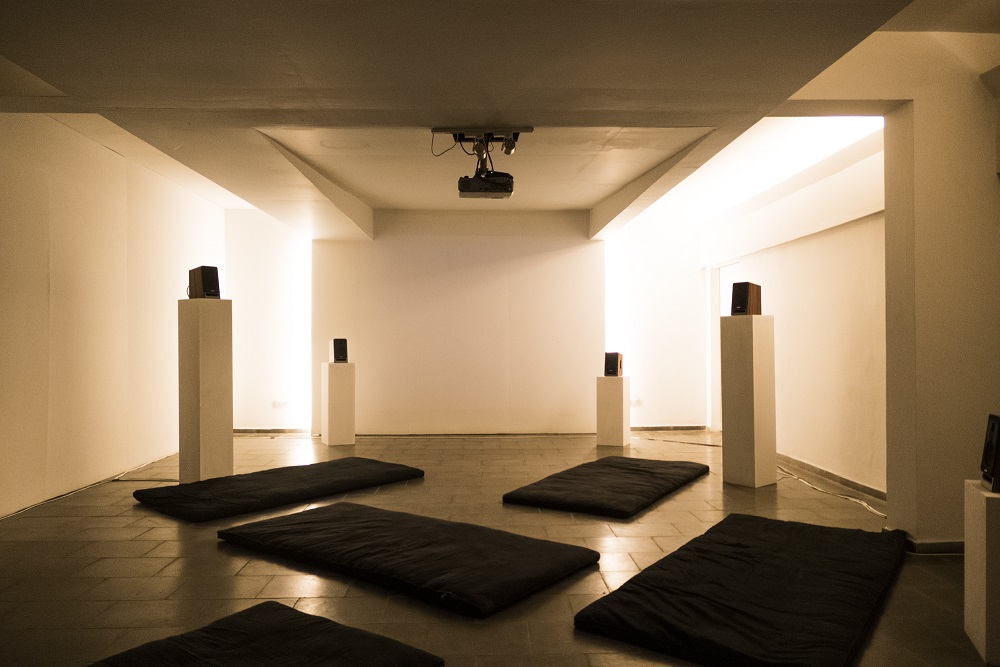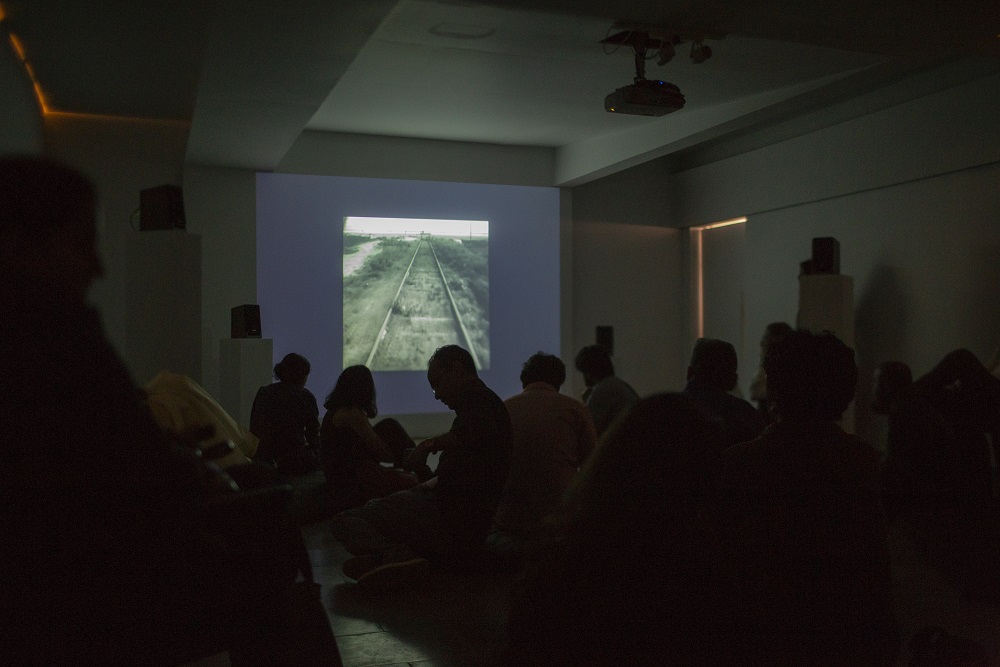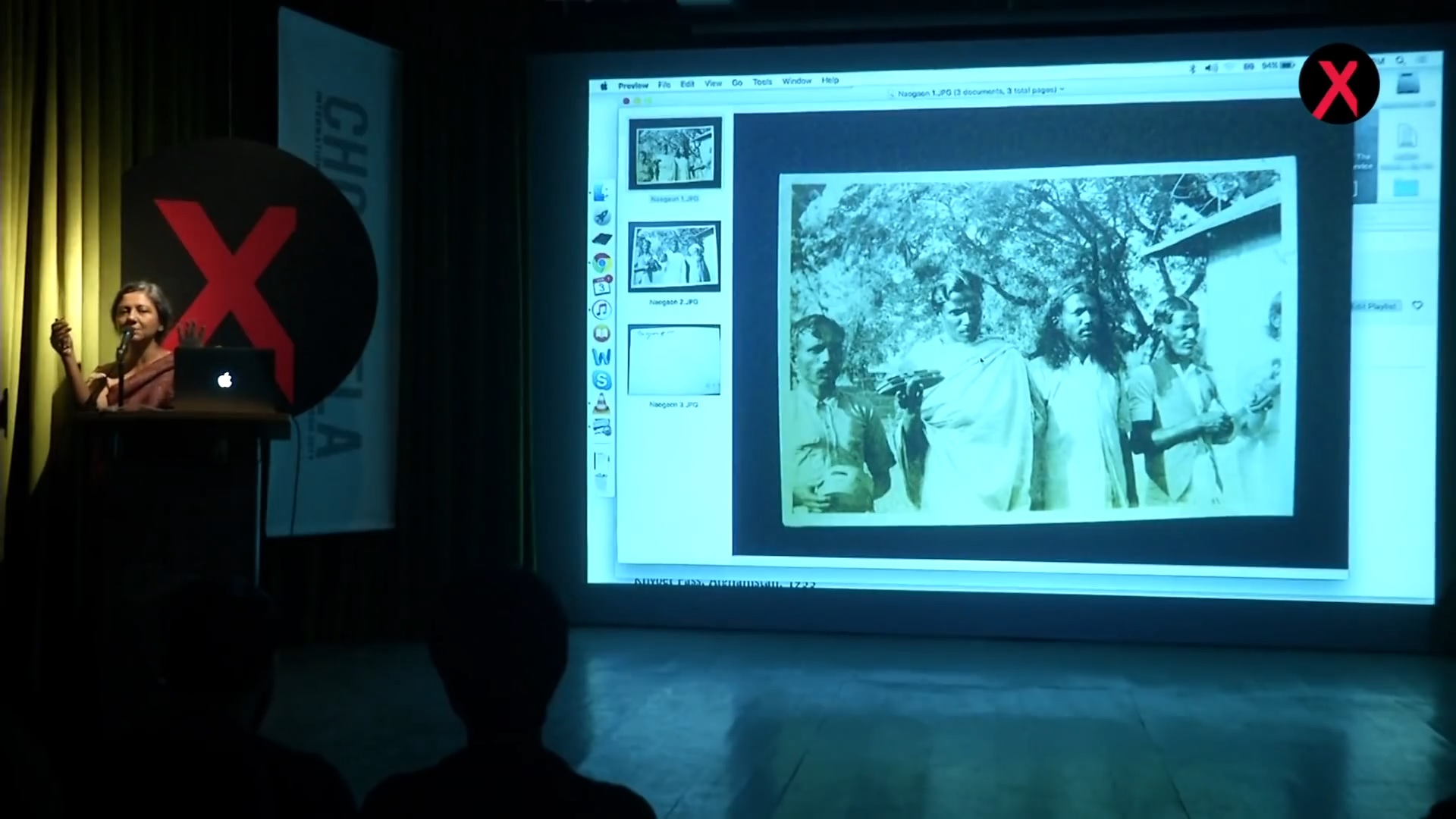
Chobi Mela Biennale, 2019
Borders and Freedoms/Borders of Freedom
An 8-channel soundtrack, interspersed with video
Languages: Bangla, English, Urdu, Khasi

সীমান্ত ও স্বাধীনতা/স্বাধীনতার সীমান্তরেখা। This 41 min 20 sec soundtrack, which played in a loop in the long rectangular space of the gallery, every 10 minutes, was created as a meditation on the relation between borders and our many ideas of freedom. It came out of a map of a land marked by fractures and fissures. What does it mean to be free and what do borders do to our freedom?

Sometimes borders are like the archetypal ‘biyog-chinho’ or minus sign of Ritwik Ghatak’s 1961 film on Partition, Komol Gandhar. Then we think of freedom as that time when life flowed in a ‘nirmal chhanda’ or with tender grace. But, borders can also come out of people’s struggles for autonomy and freedom; whether they bring lasting freedom is another question. Often we hear talk of a freedom that was, in some mythical, borderless time. There is also the dream that freedom can come with the breaking down of borders.
Was there ever such a time? Can such a time ever really come?
Then, someone dares you with her story of subversion—she has crawled under standing trains in the dark of the night, knowing the exact measure of time between a border guard turning his head from left to right; she tells you of her moment of crossing. She tells you of her free action, yet sings a song of intense pain. And you think of the girl you have seen hanging from the fence like a ‘strange fruit’, her heart pierced by the border guard’s bullet. Which image will you keep?

All these questions arise from this piece; as lone voices, dialogue or argument; sometimes they sing in unison, sometimes create a jumble of sound. The work does not offer any answers, because it can’t. The Travelling Archive can only ask you to listen.
All recordings on this soundtrack are The Travelling Archive’s, unless otherwise mentioned.
The video was edited by Indrajit Das.
The soundtrack was mixed at Aural Workstation, Kolkata.
Complete Soundtrack
A few video extracts from the installation:
This piece was installed with the active and dedicated participation of
Shuvo, Shawon, Aseer Arman and Tanvi.
Without them installation would not be possible. Nor without the initial interest of Sarker Protick and Tanzim Wahab and Drik’s kind hospitality.

Sukanta Majumdar planning the installation with the organisers
Details of the recordings used:
Zaher Ali, who asks the abiding question ‘Apnader bari kothay?’, where is your home, is a fisherman/honey-gatherer in the Sundarbans. He was recorded in his home in Koyra, on 11 January 2018.
Laila of Faridpur has been recorded many times by The Travelling Archive. She talked about border crossings at Shambhunather cha-er dokan, Faridpur, on 20 October 2011. Her bichchhed gaan, ‘Kar kachhe janabo byatha’ was recorded at Char Komlapur on 17 January 2013.
Taimoor Shahid recorded excerpts from his father, Pakistani journalist Anwer Shahid’s diary of 1971, Padma Surukh Hai, for an audio essay in which he interacts with the diary. He sent us the recording from Chicago on 4 February 2016.

Artist talk during Chobi Mela X, Dhaka – Entire session’s video is available here
Moushumi has read an excerpt from Taimoor’s ‘meditation on borders’ published in his blog ‘Chapati Mystery’ (chapatimystery.com).
The jarigan recording was made in Ambikapur, Faridpur on 31 March 2009. The singers are Jainuddin and his team.
The old Khasi woman who talks in broken Bangla about crossing the river to go to Chatok for ‘gua-paan’, was recorded in Shella in the Meghalaya-Sylhet border on 12 December 2012.
The general manager of Komorrah Limestone Mining Company in the East Khasi Hills region of Meghalaya, Mr D. K. Chatterjee, who talks about the 17-km ropeway to Chhatok in Sylhet, was recorded at the mines on 14 December 2015.
The KLMC was originally The Assam Bengal Cement Limited, in pre-Independence India and the anthropologist Delwar Hossain mentions it in his book Boundaries Undermined, from which Moushumi reads an extract on the duality of international borders.
Aranyo Aarjan recorded in London a short extract from his essay ‘On a World Without Borders’ on 18 February 2019, and sent to us.
Arup Das, an NGO worker who has been working in Murshidabad for decades, and who talks about the smuggling of cows across the Padma, was recorded at the Travelling Archive base in Kolkata on 23 March 2016
Faruk Wasif, poet and writer, recorded an excerpt from his piece on Felani on 2 February 2019 and sent to us from Dhaka.
The wedding song from Barddhaman was recorded as part of a research and documentation project conducted by Chandreyee Dey and supported by the Sahapedia-UNESCO Fellowships, 2018. The singers are Monoara Begum, Jahanara Begum, Najmul Nahar Begum.
The writer Hasan Azizul Huq was recorded talking about his book Agun Pakhi and about his mother in his home in Rajshahi on 17 September 2015.
Sukanta reads extracts from Agun Pakhi. He also reads from the Bangla translation of Anwar Shahid’s Padma Surukh Hai.
We also used some ambient sounds recorded by sound artist Gilles Aubry at the border in the East Khasi Hills region, and video and stills from sound artist Robert Millis, from the same trip. Both of them were part of a collaboration in field recording with The Travelling Archive in December 2015.
Borders and Freedoms/Borders of Freedom, copyright 2019 The Travelling Archive.
Created for Chobi Mela X, 2019, Dhaka.
- Rehearsals for Revolution at Serendipity Art Festival, 2024
- Her Voices at ‘Like Air, I’ll Rise’, Experimenter, 2024
- Baba Betar at Chobi Mela Shunyo 2021
- A Slightly Curving Place 2020
- Time upon Time: Arnold Bake in Bengal 2016
- Baul Fakir Utsav 2006-2015
- Travelling Archive in East London 2015
- Footsteps of Sound 2013
- Unbox 2013
- Life of Rivers, 2011
